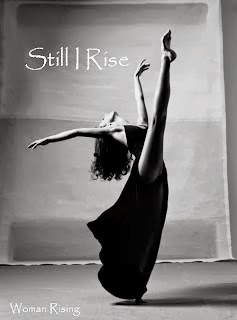Dr. Maya Angelou is one of the most renowned and influential voices of our time. Hailed as a global renaissance woman, Dr. Angelou is a celebrated poet, memoirist, novelist, educator, dramatist, producer, actress, historian, filmmaker, and civil rights activist.
Born on April 4th, 1928, in St. Louis, Missouri, Dr. Angelou was raised in St. Louis and Stamps, Arkansas. In Stamps, Dr. Angelou experienced the brutality of racial discrimination, but she also absorbed the unshakable faith and values of traditional African-American family, community, and culture.
As a teenager, Dr. Angelou’s love for the arts won her a scholarship to study dance and drama at San Francisco’s Labor School. At 14, she dropped out to become San Francisco’s first African-American female cable car conductor. She later finished high school, giving birth to her son, Guy, a few weeks after graduation. As a young single mother, she supported her son by working as a waitress and cook, however her passion for music, dance, performance, and poetry would soon take center stage.
In 1954 and 1955, Dr. Angelou toured Europe with a production of the opera Porgy and Bess. She studied modern dance with Martha Graham, danced with Alvin Ailey on television variety shows and, in 1957, recorded her first album, Calypso Lady. In 1958, she moved to New York, where she joined the Harlem Writers Guild, acted in the historic Off-Broadway production of Jean Genet’s The Blacks and wrote and performed Cabaret for Freedom.
In 1960, Dr. Angelou moved to Cairo, Egypt where she served as editor of the English language weeklyThe Arab Observer. The next year, she moved to Ghana where she taught at the University of Ghana’s School of Music and Drama, worked as feature editor for The African Review and wrote for The Ghanaian Times.
During her years abroad, Dr. Angelou read and studied voraciously, mastering French, Spanish, Italian, Arabic and the West African language Fanti. While in Ghana, she met with Malcolm X and, in 1964, returned to America to help him build his new Organization of African American Unity.
Shortly after her arrival in the United States, Malcolm X was assassinated, and the organization dissolved. Soon after X’s assassination, Dr. Martin Luther King, Jr. asked Dr. Angelou to serve as Northern Coordinator for the Southern Christian Leadership Conference. King’s assassination, falling on her birthday in 1968, left her devastated.
With the guidance of her friend, the novelist James Baldwin, she began work on the book that would become I Know Why the Caged Bird Sings. Published in 1970, I Know Why the Caged Bird Sings was published to international acclaim and enormous popular success. The list of her published verse, non-fiction, and fiction now includes more than 30 bestselling titles.
A trailblazer in film and television, Dr. Angelou wrote the screenplay and composed the score for the 1972 film Georgia, Georgia. Her script, the first by an African American woman ever to be filmed, was nominated for a Pulitzer Prize.
She continues to appear on television and in films including the landmark television adaptation of Alex Haley’s Roots (1977) and John Singleton’s Poetic Justice(1993). In 1996, she directed her first feature film,Down in the Delta. In 2008, she composed poetry for and narrated the award-winning documentary The Black Candle, directed by M.K. Asante.
Dr. Angelou has served on two presidential committees, was awarded the Presidential Medal of Arts in 2000, the Lincoln Medal in 2008, and has received 3 Grammy Awards. President Clinton requested that she compose a poem to read at his inauguration in 1993. Dr. Angelou’s reading of her poem “On the Pulse of the Morning” was broadcast live around the world.
Dr. Angelou has received over 50 honorary degrees and is Reynolds Professor of American Studies at Wake Forest University.
Dr. Angelou’s words and actions continue to stir our souls, energize our bodies, liberate our minds, and heal our hearts.
Read full text of “Still I Rise” here.

Dr. Angelou reads “And Still I Rise” on NPR
Dr. Angelou Talks about “Still I Rise”, Huffington Post Article
Teaching Tolerance with “Still I Rise
Teachers & Writers Magazine is published by Teachers & Writers Collaborative as a resource for teaching the art of writing to people of all ages. The online magazine presents a wide range of ideas and approaches, as well as lively explorations of T&W’s mission to celebrate the imagination and create greater equity in and through the literary arts.

